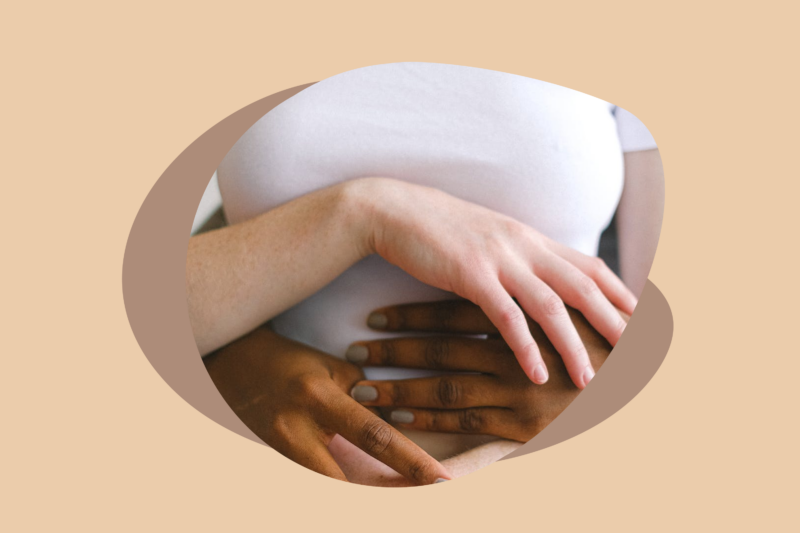Lifestyle Factors that can Impact Your Fertility
The formula for getting pregnant seems clear: stop taking or remove your birth control, have sex at the right time, and you’ll have a kid. Unfortunately, this doesn’t take into account the many aspects of a “normal” lifestyle that could disrupt the process and impact your fertility.

According to Dr. Angela Le, an integrative reproductive health expert and founder of Fifth Avenue Fertility Wellness in New York City, “Most of the population needs to be at peak health in order to conceive. There’s about 10 percent of the population that could get pregnant under the direst of circumstances and about 10 percent of the population that’s infertile due to various issues. But that leaves a lot of people in the middle that have to tend the soil, so to speak, before a seed can get planted and grow.”
What lifestyle changes can you make to get pregnant? For most people that means maintaining a healthy weight, eating a healthy diet, getting enough sleep, and keeping their stress levels under control.
Maintaining a Healthy Weight To Get Pregnant
Being both overweight and underweight can negatively impact hormone production in women’s bodies, making it difficult to get pregnant. The hormonal imbalance associated with obesity can lead to insulin resistance which can prevent your body from producing eggs properly and could lead to the development or worsening of polycystic ovarian syndrome (an impediment to getting pregnant).
Women who are underweight are more likely to have a deficient in leptin, a hormone that’s necessary for the maintenance of a healthy period. And while doctors believe that women who don’t have regular periods have a harder time getting pregnant, the limited research on underweight women and fertility has produced conflicting results. Separate of this, IVF doctors have reported lower success rates for women who are underweight compared to normal weight peers.
Eating a Healthy Diet To Get Pregnant
A 2013 study found that adequate folate levels were directly linked to female fertility and that following the Mediterranean diet was one of the best ways to ensure women got enough of it. Studies have also shown the importance of b-vitamins and vitamin D in getting and staying pregnant.
Dr. Le recommends a diet high in leafy green vegetables, healthy fats, organic meats and whole grains and encourages the elimination of alcohol, sugar, caffeine, dairy and gluten.
“I encourage the elimination of sugar and caffeine especially because they’re inflammatory and people often use them to mask other imbalances. For instance, a woman might drink a lot of coffee because she’s not sleeping or she’s stressed and then she crashes so she eats a bunch of sugar for energy. When you remove the substances, it’s easier to see the underlying causes that need to change.”
Getting Enough Sleep
Multiple studies have shown the importance of getting a good night’s rest when it comes to fertility. In 2002, ScienceDirect published a study that showed women who averaged 7 to 9 hours of sleep per night, had follicle stimulating hormone (FSH) levels 20 percent higher than short-term sleepers. And in 2017, Fertility and Sterility published a study that found that low quality sleep had a negative impact on fertilization rates for women going through IVF.
If you’re struggling to get pregnant, even light pollution could be to blame. When you fall asleep, your body produces melatonin, a hormone responsible for your circadian rhythm and for protecting your eggs when they’re close to ovulation. But if you sleep with the lights on or watch television or look at your phone right before bed, you can screw up their melatonin levels which can lead to damaged eggs which your body will ultimately reject.
Keeping Stress Levels Under Control
Stress is one of those nebulous factors of infertility that’s hard to quantify. It bleeds into your everyday life, affecting sleep patterns, dietary choices and even whether or not your body holds on to weight. But you can’t put your life on hold just because you’re trying to conceive. What you can do is manage it. Dr. Le recommends her patients, “pay attention to the areas of their lives that aren’t working and start to work on them.”
Ultimately, the goal is to live the healthiest lifestyle you can so that you produce healthy eggs and give them the best chance at fertilization. Lifestyle tweaks alone might not be enough to achieve this, but they can certainly help other treatments be more effective and they’ll make you feel better, which can make the process of getting pregnant more enjoyable.
The contents of this blog were independently prepared, and are for informational purposes only. The opinions expressed herein are those of the author and are not necessarily indicative of the views of any other party. Individual results may vary.
Sources
- http://www.fifthavenuefertilitywellness.com/about-angelale/
- https://health.clevelandclinic.org/5-ways-obesity-affects-your-fertility/
- https://www.ncbi.nlm.nih.gov/pmc/articles/PMC2861983/
- https://www.fertstert.org/article/S0015-0282(16)62725-5/fulltext
- https://www.fertstert.org/article/S0015-0282(09)04338-6/fulltext
- http://americanpregnancy.org/pregnancy-health/vitamin-b-pregnancy/
#yourfertility
Mira’s Editorial Process
All content produced by Mira meets stringent editorial standards, ensuring excellence and accuracy in language and medical precision. Every piece undergoes thorough fact-checking and review by qualified professionals. Check out our full editorial process to learn more.










